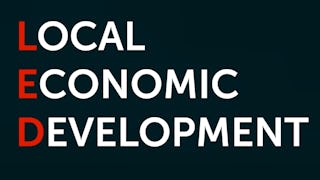If you really care about the big questions in the economies and societies of the 21st century, such as distributive justice - namely, inequality of income or wealth, and its correlation with economic growth - this course is meant for you. The knowledge you will gain can truly change your outlook on our world.
"Economic Growth and Distributive Justice - the Role of the State" is the first part of a two part course and it includes the following four lectures: (1) What do we need a state for? (2) The Relationship between Efficiency and Distributive Justice (3) Demonstrating the implications of different ethical theories (4) Distributive Justice: measurement and implications Once you've completed the first part, we strongly recommend that you register for the second part entitled: "Economic Growth and Distributive Justice - Maximizing Social Well-being", as well. Taking both parts of the course would enable you to obtain a fuller and more comprehensive knowledge about Economic Growth and Distributed Justice. The course is founded upon the elemental idea that the role of the state is to maximize the well-being - or simply the happiness - of its residents. In 9 fascinating, edifying lessons, using only simple words and decoding professional terminologies that sometimes baffle the intelligent layman, the course expounds many truths – both intuitive and unintuitive. Often using examples from the US and Europe, it does not however focus on policies in any particular region of the world, and is directly applicable to all countries around the globe. The course touches upon the essence of important concepts like efficiency and equity, inequality and poverty, gross domestic product, tax evasion and tax planning; it presents the work of Nobel Laureate James Mirrlees and his followers - promoting a coherent system that integrates tax and government expenditures to maximize social welfare; and illuminates a range of high-profile issues from their economic angle: • Climate change: the atmosphere and oceans as public goods, and how smart (Pigovian) taxation can be used to combat the rapidly increasing threats to our planet; • Technology as the engine of economic growth; • Taxing the rich: How can we mitigate the growing inequality problem? Should we impose a global tax on capital? The curriculum includes interviews with major figures in the fields of law and of economics: Harvard's Elhanan Helpman, Dan Shaviro from NYU and Richard Epstein from the University of Chicago and NYU. After successfully completing this course, you can expect to be able to: • Better understand economic issues presented in the media • Form an informed opinion on the strengths and weaknesses of presented social economic policies • Define and measure inequality and poverty • Define the connection between inequality (income, wealth) and economic growth • Explain the foundations of economic growth • Design a tax and transfer system to maximize the happiness of individuals All these will allow you to better understand the policies being developed around you, and to play a larger, more informed role in their development, as a conscientious citizen. In order to receive academic credit for this course you must successfully pass the academic exam on campus. For information on how to register for the academic exam – https://tauonline.tau.ac.il/registration Additionally, you can apply to certain degrees using the grades you received on the courses. Read more on this here – https://go.tau.ac.il/b.a/mooc-acceptance Teachers interested in teaching this course in their class rooms are invited to explore our Academic High school program here – https://tauonline.tau.ac.il/online-highschool Please note that there is a second part to this course which is a direct extension of this part. We highly recommend to continue to the second part after you finish this one (https://www.coursera.org/learn/economic-growth-part-2/home/welcome). This course will temporarily close for enrollment from March 1st, 2022 to August 31st, 2022. During this time, the course will be closed for new enrolments. All of the course materials will continue to be able available to previously enrolled learners; however, the course staff will not provide support in the Discussion Forums during this period. Best, The Tel Aviv University Team





















